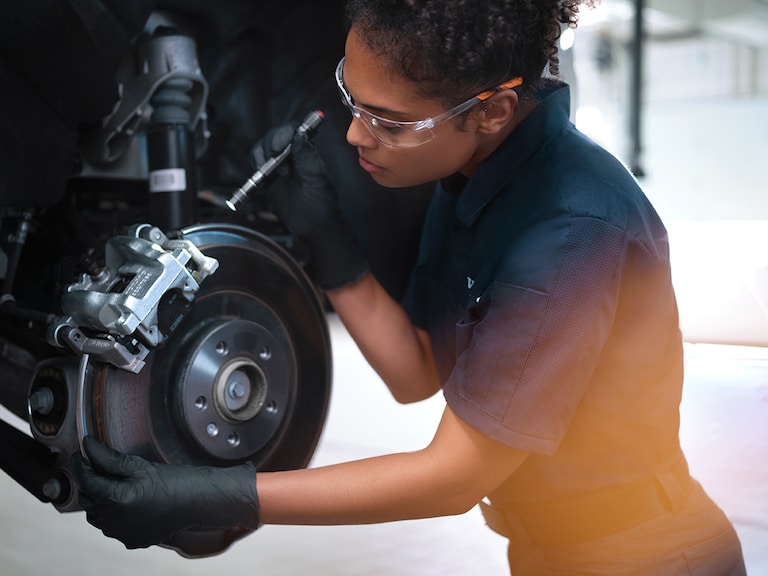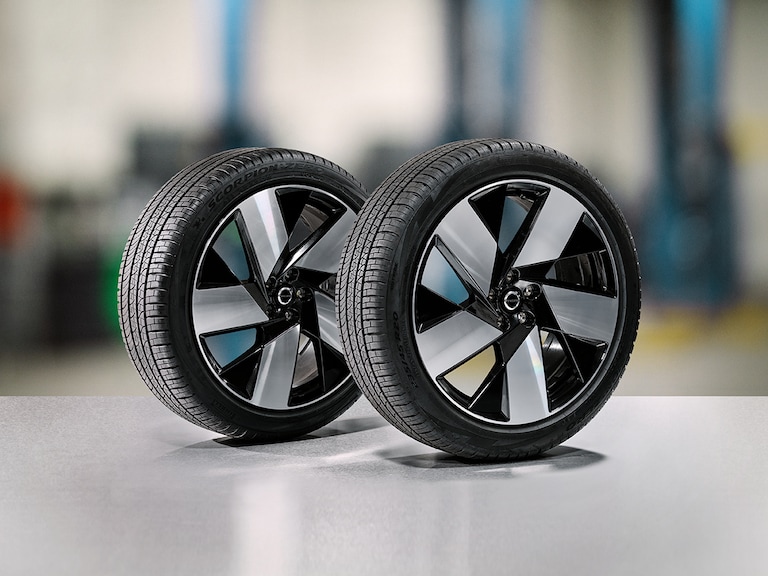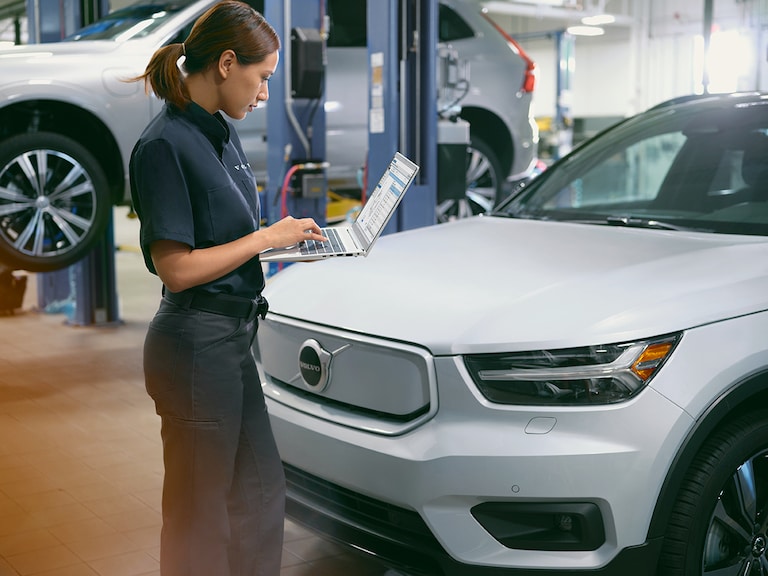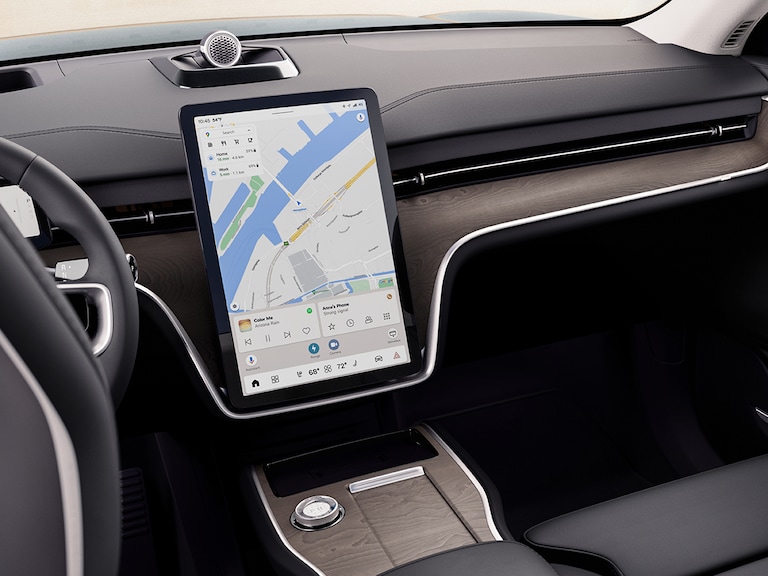EV Service
Maintenance Schedules for Your Volvo Electric and Hybrid Vehicles
Although your vehicle doesn't have a traditional engine, it still needs many of the same services as conventional vehicles. The maintenance schedule is less complex than the gas-powered Volvos since there are fewer components to maintain, and you'll have fewer trips to our service center. The minimum scheduled maintenance begins at 20,000 miles or every 24 months. Our service technicians will inspect your washer fluid, tire inflation pressure, brake system fluid levels, and all exterior lights. They will also ensure that your battery is operating as expected and make any suggestions to improve or maintain your vehicle's pristine condition.
Brakes and Fluids
Your brakes and brake fluid should be inspected and potentially changed after 3 years or 40,000 miles. With regenerative braking, your electric vehicle's brakes should last longer than those of traditional cars, although it is still essential to service them regularly. Getting your Brake fluid replaced can help you stay on the road. Replacing your brake fluid helps to absorb moisture and prevent rusting, allowing you to drive in any weather.
Tire Rotations
Tires should be rotated every 5,000 miles or every six months. This is done to prolong your tires' life and provide you with a smoother ride. Without a tire rotation, your vehicle's alignment could be affected. Your vehicle may steer off to one side or the other when attempting to drive straight with an uneven alignment. Uneven alignment can lead to more costly damage to your car's suspension.
Coolant System
Your car has a thermal management system just like traditional combustion engine vehicles do and require service in the same way. Your vehicle's coolant system should be serviced every 150,000 miles or five years.
Software Updates
Like your smartphone or computer, your electric vehicle occasionally needs software updates to improve the car's performance. These updates are usually performed as part of a recall. If your vehicle requires an update, it will come at no cost.
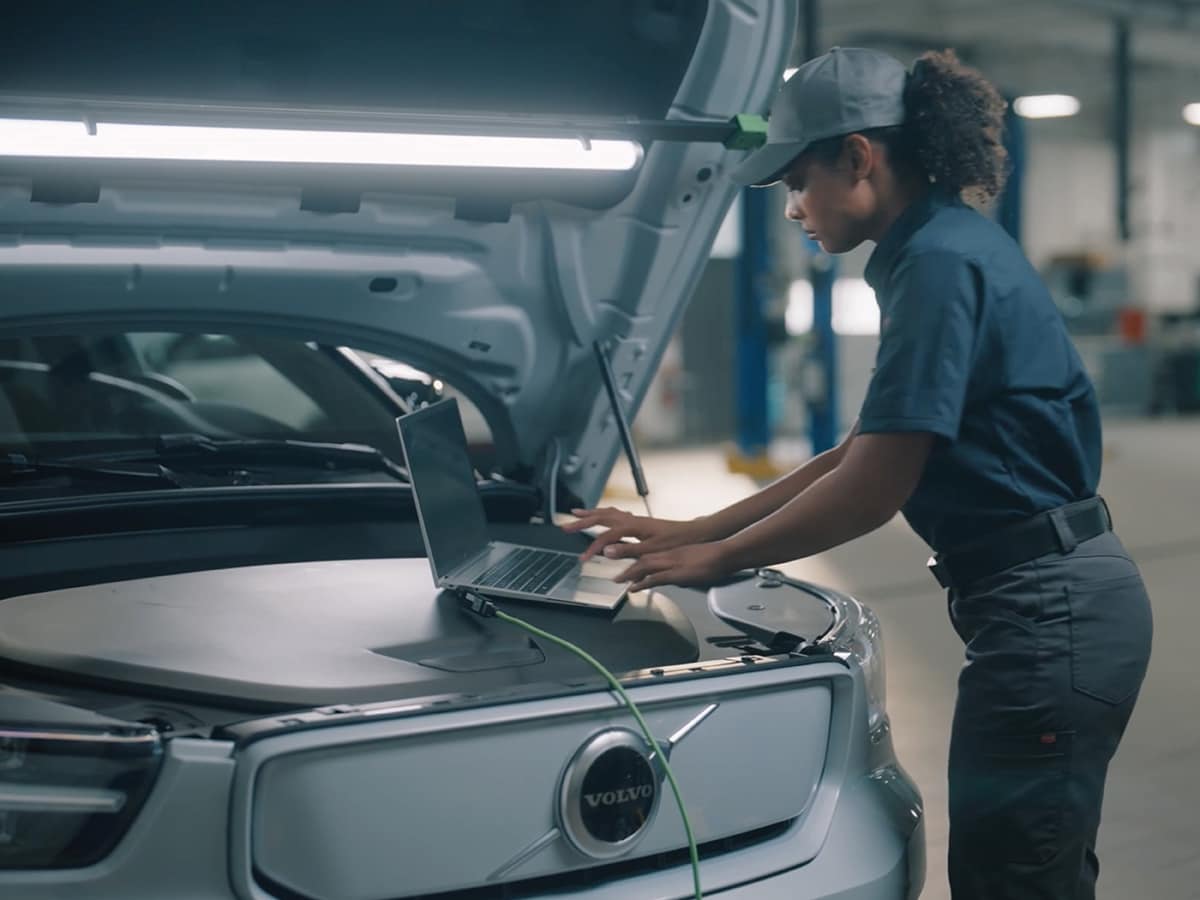
Battery Inspection
While most EV batteries will last 100,000 miles or more, regularly having the battery checked is essential to catching any small issues before they lead to major problems.
The vehicle and the battery have gone through immense safety testing to meet the same standards as any other vehicle
- Standards and regulations have been made to limit spillage in the event of a collision, and measures have been made to separate the high-voltage system and the chassis
- The high-voltage system deactivates in the event of an accident.
Learn more about EV Today
